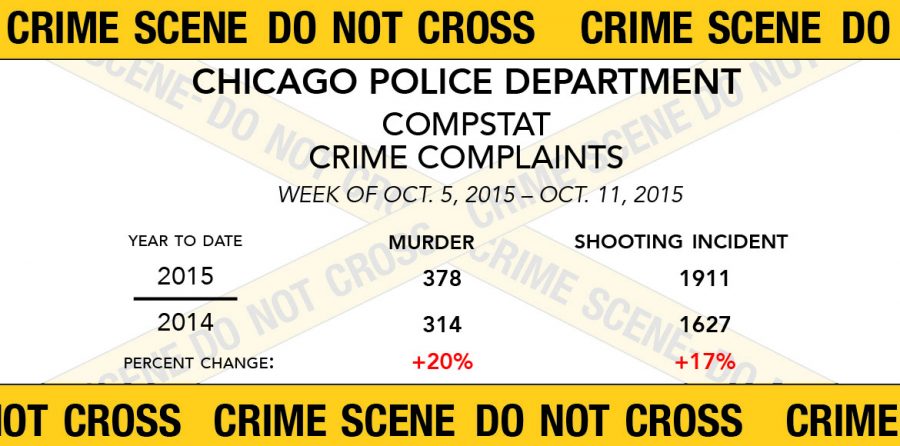Gun buyback program announcement reignites conversation on gun violence
Murder rates are up 20% over October 2014.
October 26, 2015
The city of Chicago is trading cash for guns in an effort to reduce crime on its notoriously violent streets.
The $250,000 program, announced in an Oct. 19 press release, arrives as Chicago’s 2015 murder rate is up 20 percent over the same date in October of 2014, according to Chicago Police CompStat.
Chicago has previously hosted buyback programs, but this is the first to partner with community organizations to host several buybacks in neighborhoods across the city.
“Everyone has a role to play in the safety of our city, and this new partnership is a great example of how we can all work together to make our communities safer,” Mayor Rahm Emanuel said in the announcement. “As police, pastors and community leaders come together to encourage people to turn in their guns, we can help turn the tide in our fight against gun violence.”
Jedidiah Brown, president of the Young Leaders Alliance, said his organization worked with the city on the new format for the program.
“I think they’ve looked at past successes and failures, and based on their assessments, they’re trying something new,” he said. “There’s no sure way to say, but I’m excited they’re trying a different method.”
While buyback programs cannot solve all the city’s gun problems, Brown said, they are one of many options the city can provide to citizens.
“The way to reduce violence is to provide options,” he said. “Every option has the potential to make a major difference because [if] you take one gun off the street that could have taken a life, that’s a significant success to me.”
Not everyone is convinced that buyback programs are a strong solution to Chicago’s violence. The announcement led to a broader discussion on the causes of gunfire.
John Boch, executive director of Guns Save Life, a gun-rights advocacy group, said he does not support the program. Stronger sentencing—not fewer guns—would reduce gun violence, he said.
“If Chicago wants to reduce violent crime, they need to start putting bad people away for a long time,” Boch said. “We’re not putting violent offenders away in prison, so there’s no deterrent to that behavior.”
Boch said his group will protest the event, as they have in the past, by turning in defective guns and using the money to help fund gun camps for children.
Rep. Kenneth Dunkin (D-IL) defended the state, saying current laws are adequate.
“If someone pulls out a handgun right now, and they shoot at someone, are there not laws to address that now?” Dunkin said.
In Illinois, reckless discharge of a firearm is a Class 4 felony, punishable by one to three years in prison, according to the Illinois Compiled Statutes database. Boch said this sentence is not strong enough, but Dunkin said stronger sentencing is a bad idea.
“Judges are not in favor of mandatory sentencing because it’s proven to be a vehicle for mass incarceration in this country,” Dunkin said.
Brown said violence will drop when city leaders get better at connecting with citizens.
“The government should seek to empower the residents, versus lead them,” he said. “Give the programs to community churches and organizations that reach and deal with the people that are targeted every single day.”








